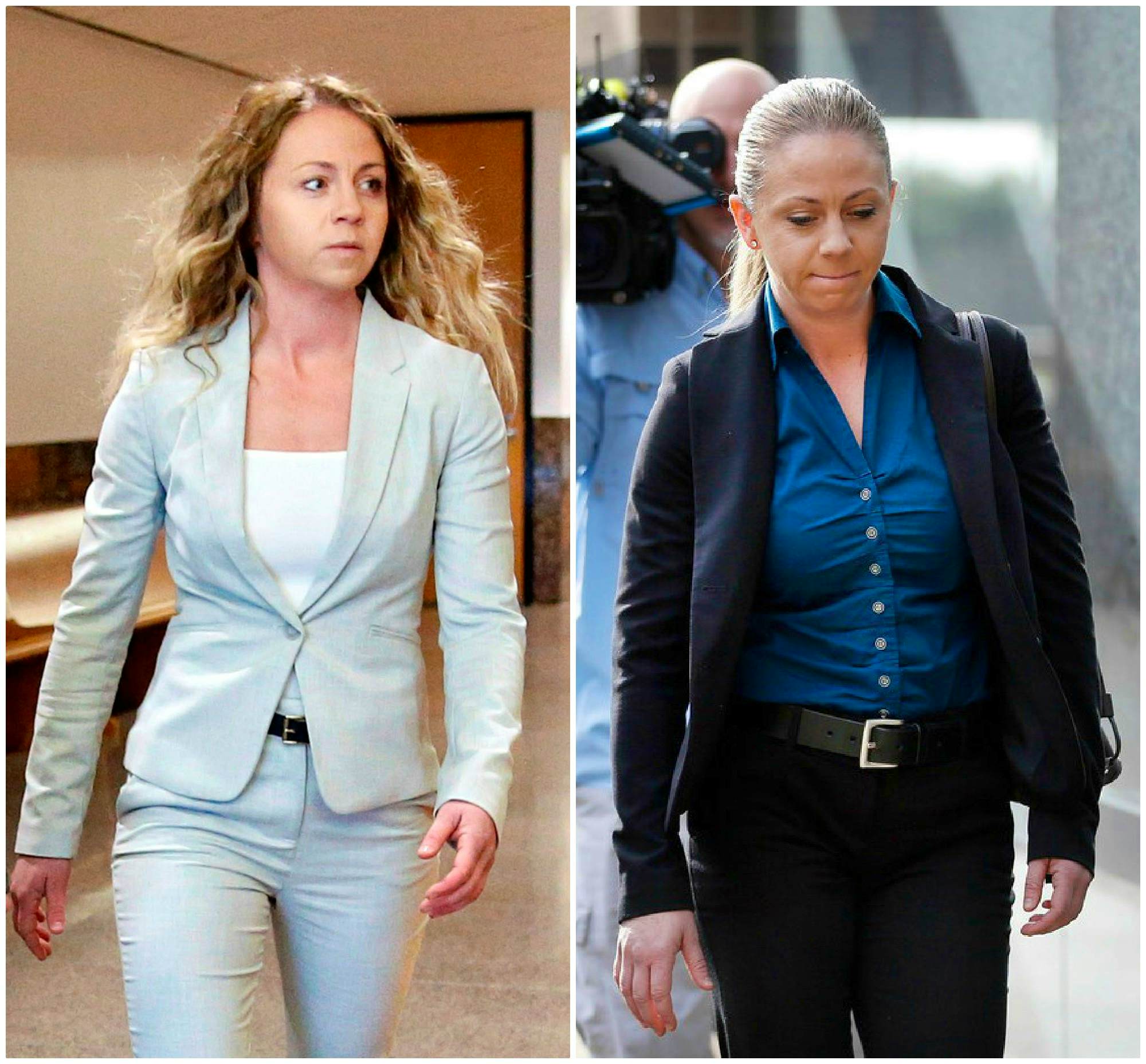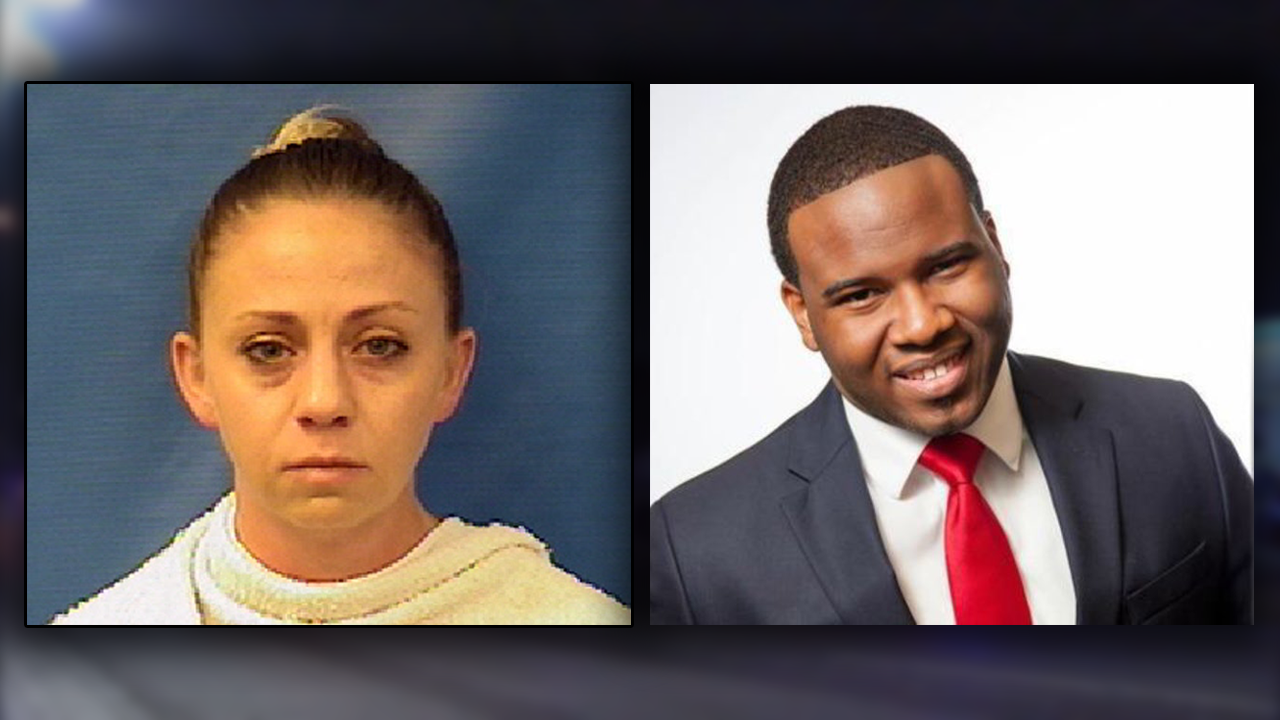In 911 call, Amber Guyger worried more 'about losing her job than my son,' Botham Jean's mother says
The frantic 911 call that Amber Guyger made after she shot Botham Jean in his Dallas apartment did nothing to shake his family's belief that the Dallas police officer murdered him.
In fact,
Jean's mother told The Dallas Morning News on Tuesday that hearing Guyger’s pleas for help as Jean moans and takes his final breaths made her more certain than ever.
“The call made me strengthen my view that Amber Guyger is a cold-blooded killer because she was more concerned about losing her job than my son, the value of my son,” Allison Jean said. “She does not sound like she was trying to help him at all.”
Guyger, 30, was off duty but still in uniform Sept. 6 when she shot and killed Jean in his apartment in the Cedars, not far from Dallas police headquarters. Jean, a 26-year-old accountant, was watching football on his couch when Guyger entered.
In the
911 recording obtained by WFAA-TV (Channel 8) Guyger says over and over that she thought the apartment was hers. She told police the same thing.
A law enforcement official told The News in the days after the shooting that Guyger called 911 in tears. The official said Guyger repeatedly said, "I thought it was my apartment" and apologized to Jean.
"I'm an off-duty officer. I thought I was in my apartment, and I shot a guy thinking he was — thinking it was my apartment,"
Guyger tells the 911 operator.
Guyger lived directly below Jean at the South Side Flats apartments.
"I'm gonna lose my job," she says after the operator tells her that help is on the way. She repeatedly talks about losing her job during the phone call. “I’m done. I didn’t mean to. I didn’t mean to.”
Dallas Police Chief U. Renee Hall fired Guyger on Sept. 24. That was the same day Jean was
buried in a cemetery by the sea in St. Lucia, the Caribbean island where he grew up and hoped to return to run for prime minister.
‘Helpful for her’
Dallas attorney
George Milner III said the 911 call is a win for Guyger. He's frequently defended police officers accused of breaking the law but is not involved in the Guyger case.
“Bottom line,” Milner said, “it’s helpful for her.”
Milner said the call supports her statement to law enforcement that she thought she was in her own apartment. A defense to the murder charge can be that Guyger made a
“mistake of fact” when she killed Jean.
But he said that if he represented Guyger, he'd wish she hadn’t told the 911 operator so much.
“It’s probably unhelpful that she was talking about losing her job at that point,” he said. “She should have just said, ‘I’m an off-duty officer. I’ve been involved in a shooting,’ given the address and hung up.”
Milner said it’s difficult to believe Guyger came up with a story to tell the police in such a short time. Saying so much, he said, makes her story about thinking it was her apartment more believable.
“None of that changes the fact that Botham Jean is dead and he shouldn’t be,” Milner said.
Guyger’s attorneys and the Dallas County district attorney’s office both declined to comment about the tape. State District Judge Tammy Kemp issued
a gag orderpreventing prosecutors and defense attorneys from speaking about the case.
Before the gag order, one of Guyger’s attorneys, Robert Rogers, said Guyger is “completely devastated by what happened” and described the shooting as “a tragic mistake.”
Dallas Police Association President Mike Mata also declined to comment Tuesday, although he's spoken on Guyger’s behalf in the past. Shortly after the shooting, Mata called Guyger "a young dedicated officer who has done an amazing job in her short time with the Dallas Police Department."
Dallas police issued a statement Tuesday saying the department had opened an internal affairs investigation into the release of the 911 recording. The department said it had not authorized its release since the Texas attorney general's office ruled authorities could withhold it in light of the pending criminal investigation.
‘It’s still murder’
Lee Merritt, an attorney for the Jean family, said the public already knew the contents of the 911 call because of prior reporting by The News. The recording, he said, doesn't clear Guyger of murder allegations or change perceptions of the case.
"It's still murder," he said. "No one ever claimed she didn't end up at the wrong apartment accidentally. No one ever seriously said she had sinister intent in going to the apartment."
Merritt said Guyger did not seem to be trying to save Jean's life in the recording.
"She didn't say she was trying to stop the bleeding or that she was putting pressure on it," he said.
The family
filed a lawsuit against Guyger and the city and say
they hope to see better training for Dallas police officers.
Dallas attorneys not affiliated with the case have said
murder is the appropriate chargeagainst Guyger because she intended to shoot Jean. In Texas, manslaughter is a reckless act — like shooting into a crowd and killing someone.
Merritt said the 911 call lacks key information about why Guyger shot Jean. She didn't say Jean charged at her or that she feared for her life. Merritt said that's likely what Guyger and her attorneys will say at trial in an attempt to justify her actions.
Allison Jean told The News that the call refutes Guyger’s later claim to police that she thought Jean was a burglar who gave her a reason to fire her service weapon.
“She never said she was afraid or that he charged her,” Allison Jean said. “She never said she thought he was a burglar.”
Allison Jean said she heard the emergency call Wednesday morning on Good Morning America. She is in Washington, D.C., for work-related meetings for her job as the CEO of St. Lucia’s National Utilities Regulatory Commission.
Hearing the 911 call, she said, has taken her back emotionally to where she was last year immediately after the shooting.
“It’s terrible,” she said. “It’s really heart-wrenching.”
Her husband,
Bertram Jean, listened to the call on his phone at work in St. Lucia. He became so upset, she said, that someone had to take away his phone.
Allison Jean said both she and her husband kept working Tuesday even as they struggled to cope with what they heard. “For us, work is a good distraction,” she said.
Had the recording not been made public, the call would have likely been played publicly for the first time at Guyger’s trial. Prosecutors or defense attorneys will likely now play it again for the jury.
Families of victims sometimes leave the courtroom at those moments to avoid becoming too emotional in court. Allison Jean said she will listen again in court because she needs to witness the entire trial to represent her son’s memory in court.
“I don’t know how I would react. But I am ready to stand for Botham,” she said. “If it means having to stomach very difficult evidence, I will. As painful as it is, I will listen.







